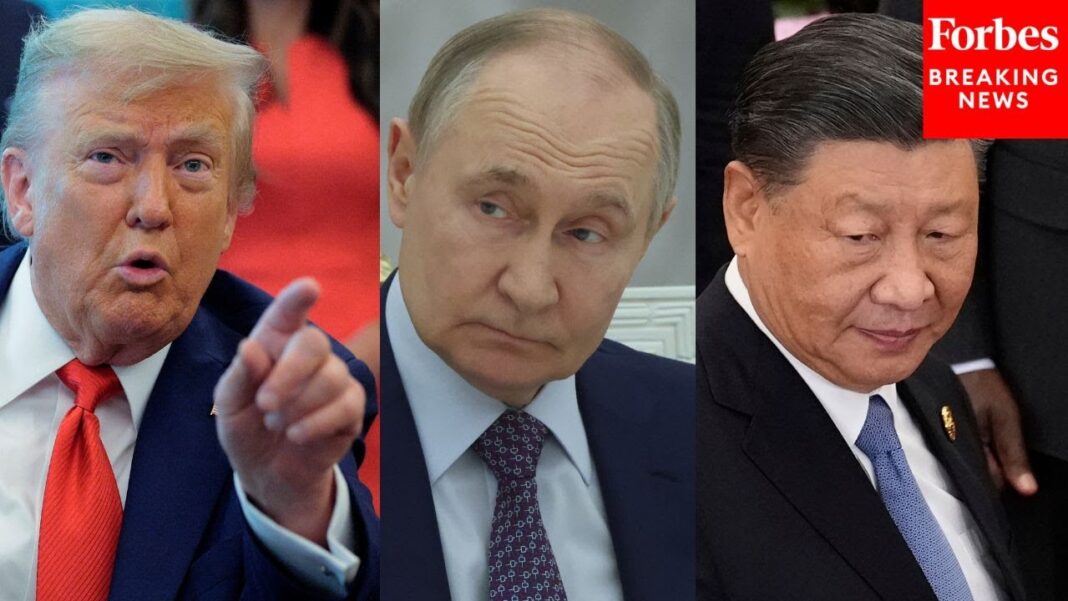‘Their effectiveness depends on whether the G7 and NATO members are willing to bear the costs based on their domestic … considerations,’ analyst said.
Finance ministers from the Group of Seven (G7), including the United States, Britain, France, Germany, Japan, Italy and Canada, held a video conference on Sept. 12 to discuss a U.S. call to impose “meaningful tariffs” on China and India for purchasing Russian oil, in an attempt to pressure Russia to end its war against Ukraine.
The ministers also met to weigh in on further sanctions on Russia and a possible tariff increase on countries “enabling” Russian’s war against Ukraine, according to a statement by Bessent and U.S. Trade Representative Jamieson Greer.
The Trump administration earlier in the week urged the European Union to impose tariffs of up to 100 percent on China and India, before extending the call to G7 and NATO allies.
“Only with a unified effort that cuts off the revenues funding Putin’s war machine at the source will we be able to apply sufficient economic pressure to end the senseless killing,” Bessent and Greer said in the statement.
Trump’s Call to NATO
On Sept. 13, U.S. President Donald Trump posted on social media that he is ready to impose “major sanctions” on Russia when all NATO countries agree to do the same thing and stop buying oil from Moscow.
Trump said that the 50 percent to 100 percent tariffs on China will also be of “great help in ending this deadly, but ridiculous war.”
The Trump administration has already imposed an additional 25 percent tariff on imported goods from India to pressure New Delhi to stop its purchases of discounted Russian crude oil, bringing total punitive duties on Indian goods to 50 percent, cooling relations between the two countries.
Trump has postponed increasing tariffs on Chinese goods over China’s purchases of Russian oil, as the Chinese regime has been using rare earth and magnets that the United States need as a leverage in negotiations.
Most G7 countries are also members of NATO, and therefore have an obligation to align their security and geopolitical actions in dealing with Russia, Davy J. Wong told The Epoch Times.
However, he said that some Eastern European members, such as Hungary, Turkey, and Slovakia “have reservations about, or have difficulty stopping purchases of Russian oil due to energy dependence, domestic politics, or strategic considerations.”
If most NATO members cooperate, “it would cut off one of Russia’s main sources of revenue, which would put substantial pressure on Moscow,” Wong said.
Trump’s call is a significant directional signal of policy, Wong noted, “but their effectiveness depends on whether the G7 and NATO members are willing to bear the costs based on their domestic political and economic considerations.”
As to what percentage would meet the definition of “meaningful tariffs,” Wong said that “if the G7/EU truly act together, tariffs of around 50–100 percent would have a significant impact on some high-volume Indian exports and certain Chinese exports.”
Wong pointed out that “China and India currently have their own trump cards: cost, discounts, the ability to find alternative suppliers, and political autonomy. However, the suggested sanctions or pressure could force China and India to make some compromises or transitions.”
By Alex Wu








